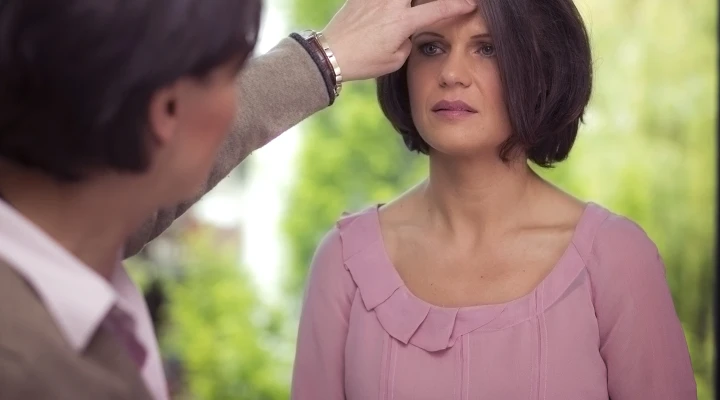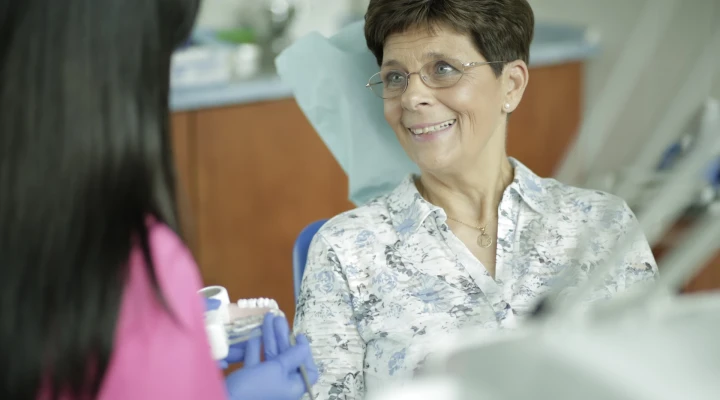These can be distinguished by physical and other tests (e.g. blood sampling, cranial MRI) or other specialist consultations.
The name primary headaches comes from the fact that here the headache itself is the main problem; laboratory or MRI examinations do not show any abnormalities. Based on a thorough examination of the clinical symptoms, the doctor will determine what type of primary headache is present, such as a migraine, tension or cluster headache.
Secondary headaches are the result of other illnesses or conditions. For example, secondary headaches can be caused by eye disease, high blood pressure, an overactive thyroid, or even a cervical spine lesion.
What happens at the Headache Clinic?
At the Headache Clinic, we first identify which patients are suffering from a primary headache. Patients with a secondary headache are referred to the appropriate specialist, as these kind of headaches can have a number of causes. Teamwork is an essential part of the process, which may also involve a neurologist, ophthalmologist or chiropractor.
We ask the patient a lot of questions, as lifestyle can have a fundamental influence on the number and type of headaches you experience. After a physical examination, we initiate a detailed discussion of preventative measures, lifestyle changes and options for medication.
If I have a primary headache: Tension headaches are usually caused by moderately strong fronts, and the pain can be felt in virtually any area of the head. In this case, life goes on – you can continue with your daily activities. Perhaps you will take a painkiller to relieve any discomfort. You must exercise caution, however: taking painkillers more than three times a week can actually cause frequent headaches, due to withdrawal symptoms from the medication!
Migraines usually last from four to 72 hours. In 70 percent of cases, migraines involve throbbing, intense pain on one side of the head. Another regular symptom is sensitivity to light, sound and smells. In the absence of these symptoms, nausea and vomiting can be especially common complaints. With migraines, it is important to note that certain lifestyle factors help to relieve the symptoms, but they alone are not enough. We can also use vitamin therapy or prescribe a migraine-specific drug that specifically affects the migraine process – this can relieve even the most severe migraines in as little as two hours.
With cluster headaches, the pain is always on one side only, and is usually very severe. This is often described by patients as like a knife being twisted in their eye. This type of headache can last from 30 minutes to three hours. It usually occurs in the evening – the patient becomes restless, and they feel like they have a cold on one side of their face, with a runny nose and watering eyes. This is known as an autonomic response. Unlike migraines, which occur very suddenly, a period of cluster headaches can last for several weeks or months, usually in the spring and fall, and the patient may experience multiple attacks in one day.
How can I prevent headaches?
Headaches have been linked to a hectic lifestyle. Constant stress also limits the length of time we spend sleeping, eating, and resting, reducing our general quality of life as a result. Instead of simply putting up with the effects, however, it is important to consciously develop a daily routine to prevent not only headaches but also other related diseases that attack the immune system.
Recommendations for a balanced lifestyle:
- Get enough sleep: eight hours a day
- Drink enough fluids: two to three liters a day
- Eat regular meals
- Avoid smoke and excessive drinking
- Exercise regularly: half an hour of exercise five times a week can work wonders for your health!
- Massage, therapeutic massage can help stiff muscles
Don't downplay your headaches! If you have an acute headache, make an appointment for our Headache Clinic and we will work together to identify the cause!




